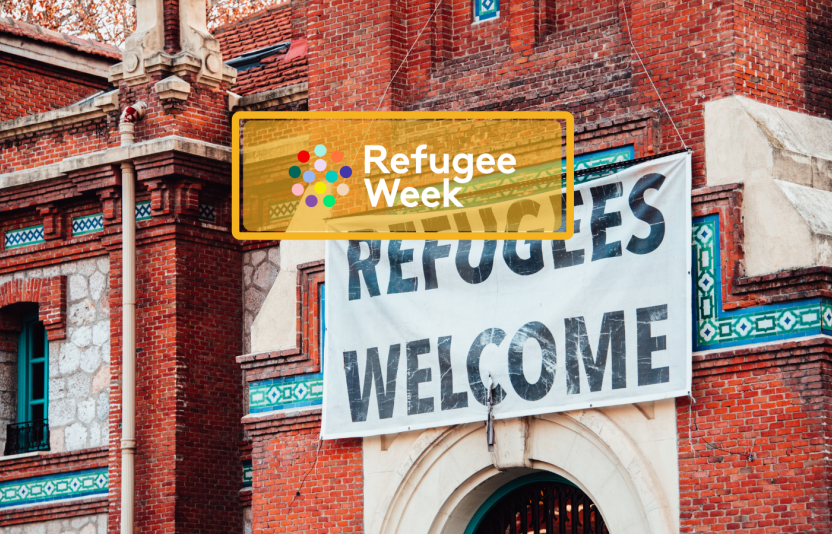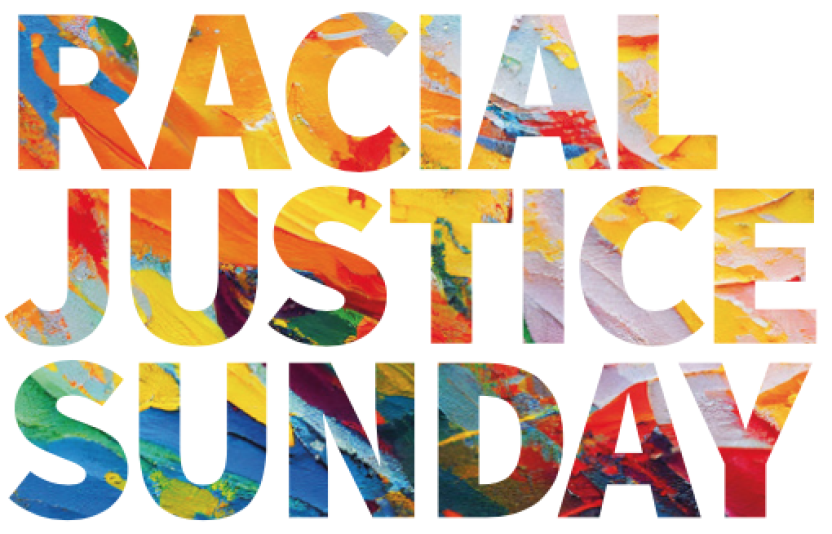“One more seat at the table, please”

This article was published in the autumn 2023 edition of European Anglicans, the quarterly diocesan magazine.
To receive this publication straight into your inbox each time we publish an edition, subscribe via this link.
How should the church respond to the human tragedies unfolding each day along the English Channel? And how do we offer hospitality amidst such need?
Thirty-one-year-old Bradon Muilenburg is a living, breathing, walking, face of the church in Northern France. Working to support those who find themselves in the limbo land between the UK and France, he says it is an intense environment, but one he feels privileged to be a part of.
I spoke to Bradon just weeks into his new role as the Anglican Refugee Support Lead, based in Calais. Softly spoken, Bradon informs me that since he started the role there have been at least five deaths of migrants seeking to cross the channel. “Four of those people's lives have been cut short in a period of just 10 days. I’m acutely aware that it’s only a matter of time before one of the children I know here drowns in the Channel, which will be heart-breaking,” he said.
As a new parent to five-month-old Jack, Bradon says, holding his son in the small hours of the night has been a “meditation on life and death”, and has brought home to him the desperation of parents who attempt to take their children on the perilous journey across one of the world’s busiest shipping lanes.
And as the number of known deaths rise, he said: “It's important to recognise and remember, that many more than those reported have disappeared in the Channel; the missing, the presumed dead, the unreported, the unidentified. The people we hear and speak so little about are usually only the ones whose bodies have been found.” Bradon said that they are so much more than a number - each of these people are individuals made in God’s image; lives full of hope, suffering, love, and shattered dreams.
Bradon, originally from Michigan in the United States, spent time as a volunteer with the Taizé community in France, before moving to work with an ecumenical Catholic Worker house of hospitality, Maria Skobtsova House, in Calais. He has been based in the city with his wife, Marie, since 2021. His new refugee support role is backed by a partnership between the Diocese in Europe, the Diocese of Canterbury and the Anglican mission agency, USPG. And it was created in response to the growing numbers of migrants around the Channel ports in Northern France.
Along with helping those around Calais who have fled danger, war, oppression, the consequences of climate change or other dangers to try and find safety, Bradon is also developing partnerships with local churches, community groups, agencies, charities and associations to help encourage them to work together to help prevent the suffering among those who arrive in the city without resources and without friends.
I asked him what attracted him to the role.
“I want to put my faith into action and at least for me, this is the place I can try,” he said.
“The main thing is to be with people and to be present, to witness what is going on here and to share that with the wider world. We shouldn’t let what’s happening become just another news story, because each life is precious and known to God.”
Much of Bradon’s time has been coming alongside people and hearing their stories which he says has been both humbling and shocking. He said at times the roles of ‘guest’ and ‘host’ get reversed in such lovely ways.
“I’ve been given so much love and support from the people here and that has been transformative. I have met Jesus in Calais more than I have ever met him anywhere else. There are so many stories of people who have lived through atrocious things. You hear stories that are the most broken part of this world, in the way people treat each other, but then there is also so much beauty in people’s lives.”
Bradon reminded me that there’s a verse in the Bible that says don’t forget to share hospitality with strangers because some have entertained angels without knowing. He says he has been surprised by his encounters with some of the refugees, including one man and his son fleeing from Iran.
“The father was a big guy, but the most gentle, kind person, travelling with his five year old son. They came up to talk to us while we were having tea with the local priest in one of the houses of hospitality welcoming exiled people, and asked us about church, then the little boy asked us if we could pray. It was such a complete reversal and reminded me that Jesus said the kingdom of heaven belongs to these little ones!”
Bradon said: “Part of my role is to encourage and support other people who are welcoming and encourage people who are a bit nervous about it, because they haven't had the experiences I have had. If we want to follow Jesus, we need to try to be hospitable and make space for others, especially people that society doesn’t want to include.
“The first thing we have to be as Christians, is to be prayerfully present… there is this machine of injustice that seems so uncaring. We have to remember that God cares and that God cares about us and the person in front of us.”
With so many empty buildings and with numerous space in large homes around Calais, Bradon is encouraging churches and individuals to be welcoming to those without a place to rest.
He said, “I know we can’t welcome everyone, but we can welcome the people we can welcome. Jesus says, if you have two coats give one to the one who has none. If you have more than you need, build a longer table, not a higher wall… because there are a lot of high walls and barbed wire all over Calais. I want to ask, how do we put one more seat at the table? There is a limit to what each person can do, but if everybody put one more seat at their table, there wouldn’t be children sleeping outside in Calais. And there are a lot of pregnant women, babies, children and young men and minors sleeping outside.
“It's not easy to make space and everybody is busy… And yet it’s so worth it. It’s the most rich experience you can have. It’s the opportunity to welcome Jesus.”
A significant part of Bradon’s job is advocacy and helping fight for justice, for those whose voices are not listened to. His biggest prayer is for safe passage to become legal for those attempting to get to the UK, which he said would end the illegal traffic of small boats.
He would also love to see more homes willing to use some of their extra space, and for shared space to be offered, where people could be hosted for a night or share meals together. “Having personal contact and meeting people for me was a transformative experience and I hope that might happen more,” he said.


